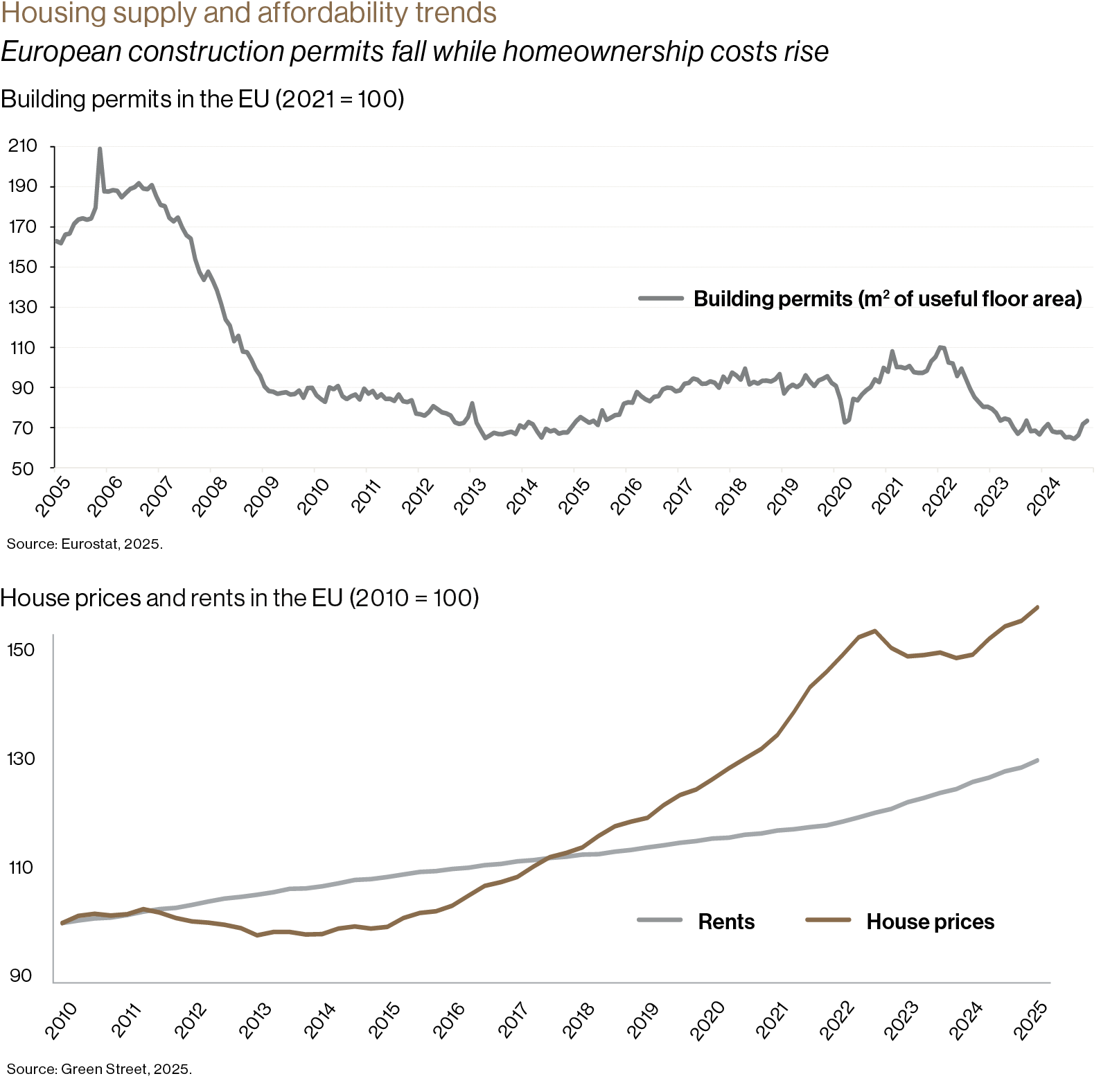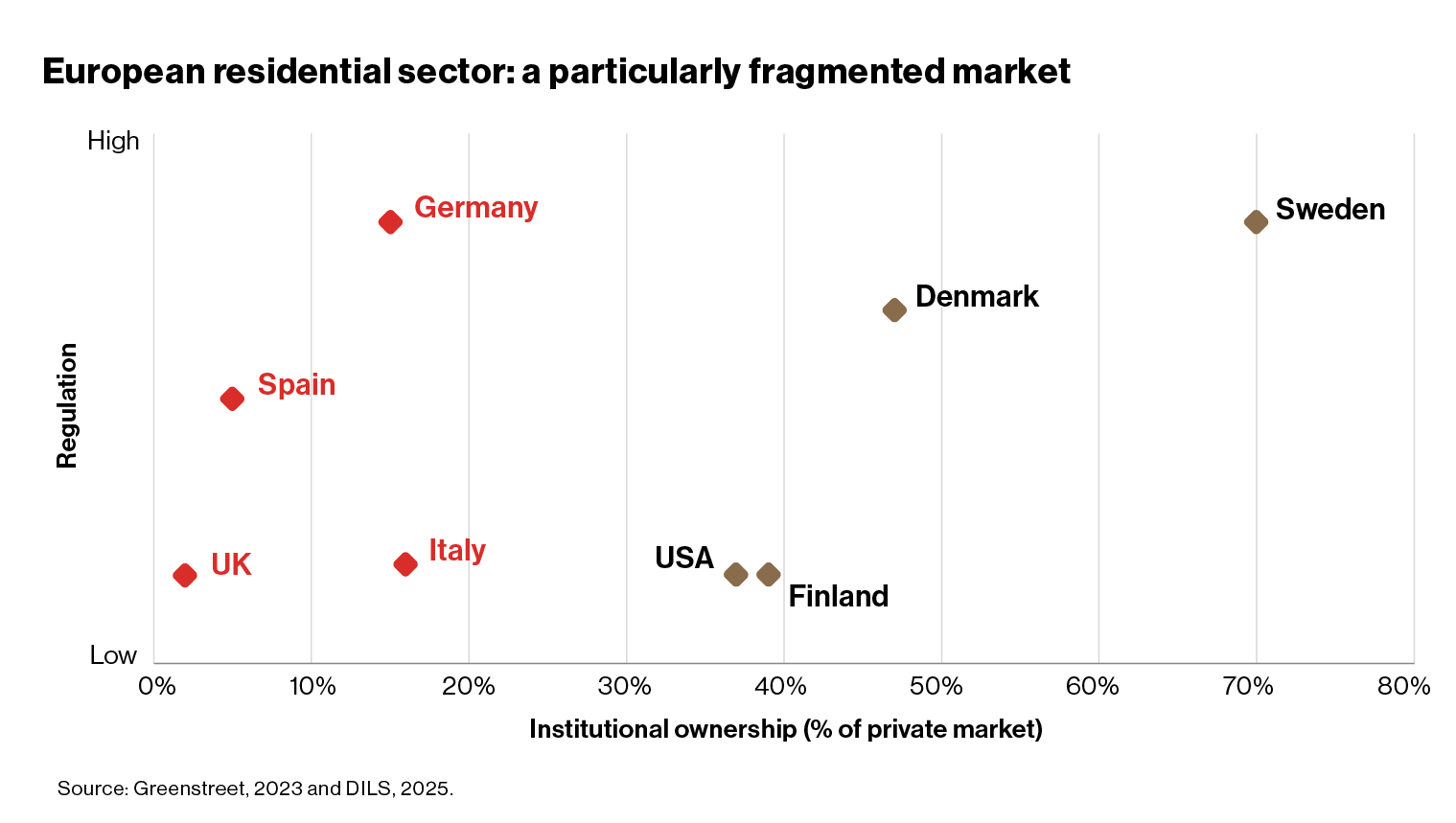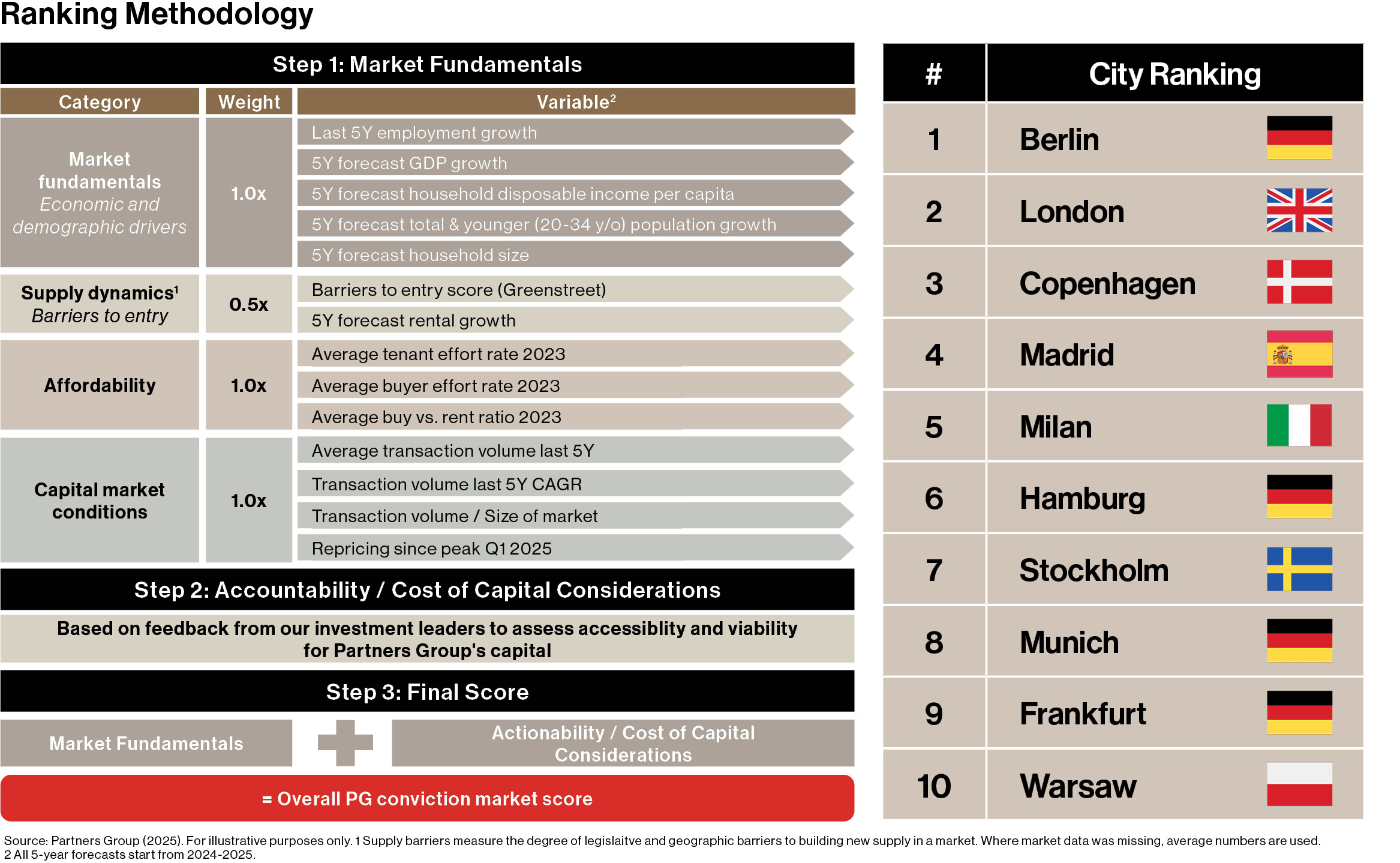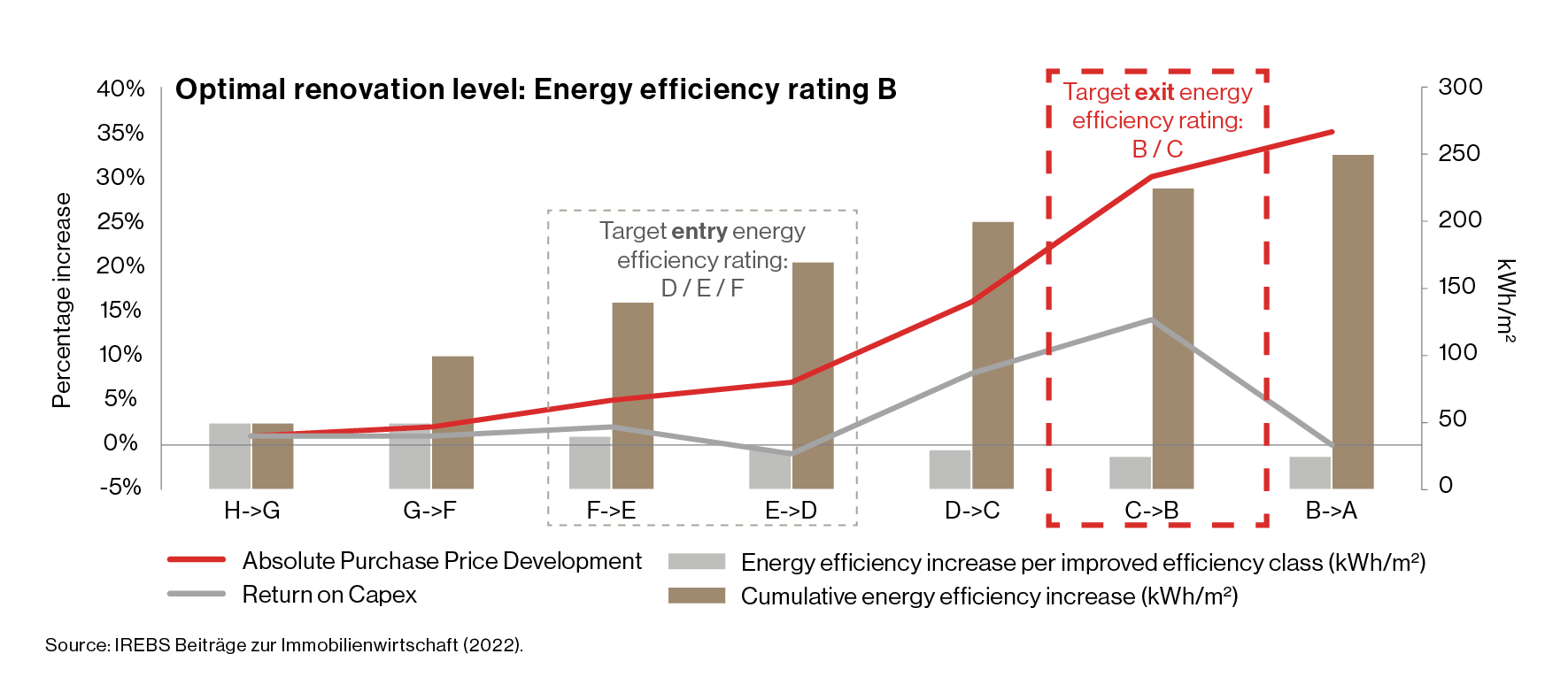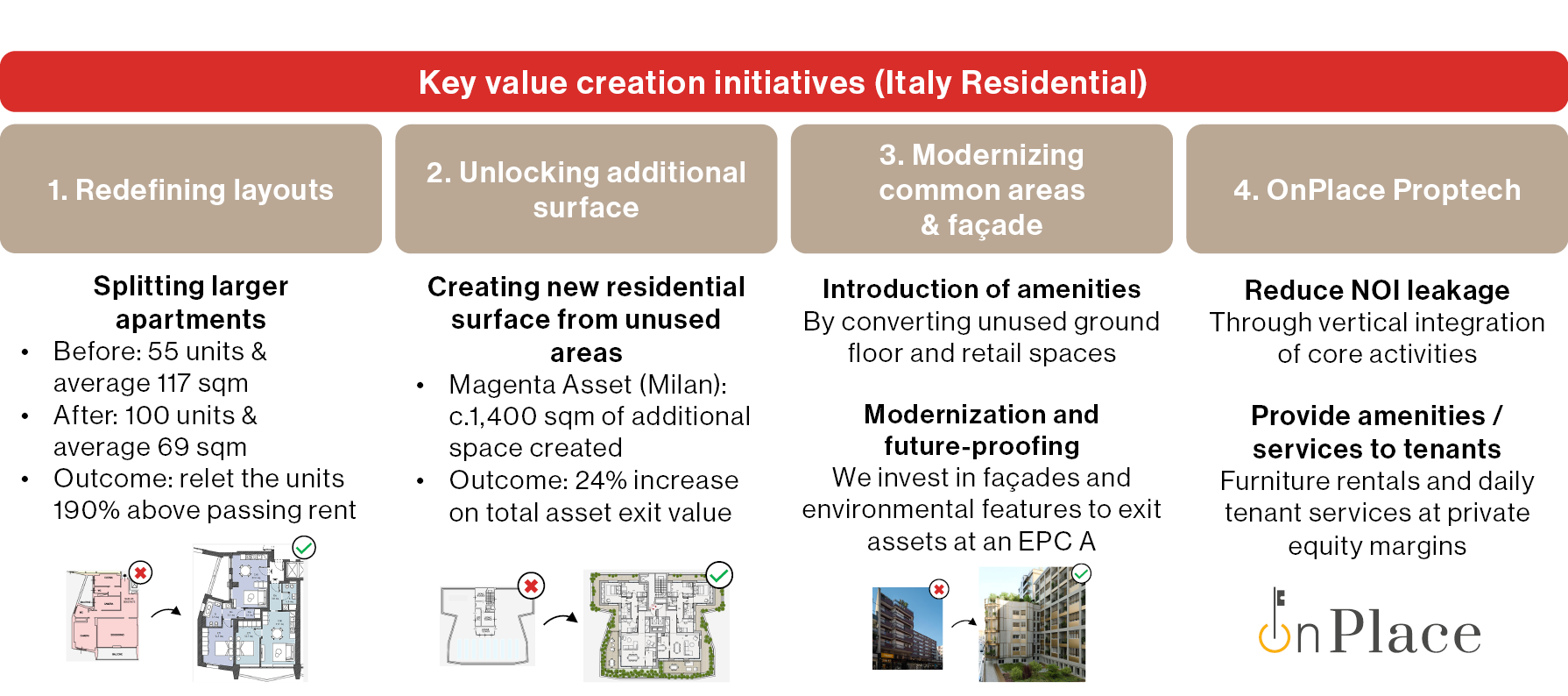Vertical integration is a core differentiator for real estate investing because it minimizes both operating expense (opex) leakage and NOI leakage.
For investors, vertical integration translates into more of rental income being captured and retained at the fund level, rather than dissipating through inefficiencies or third-party margins.
Modernizing homes in Germany with Empira's green transition strategy
Empira applies a vertically integrated model to acquire and modernize under-rented, energy-inefficient residential assets in Germany's top seven cities and their surrounding metropolitan regions. Properties with low energy ratings (D or E) are upgraded to B ratings through targeted green capex, such as insulation, heating systems, solar panels, and window replacements. These improvements not only align with ESG standards but also unlock regulated rent increases – up to EUR 3 per square meter for green investments and up to 15% every three years under rent cap legislation. Empira’s in-house control over sourcing, development, and management reduces cost leakage and boosts NOI.
The strategy builds on the success of Empira's residential portfolio strategies, which delivered a 3.8% CAGR between 2019 and 2025 in rental income across over 4,300 units, with new leases averaging 30% above existing rents. Importantly, these rent increases have not compromised affordability, as energy-efficient upgrades have significantly reduced utility costs, offsetting the rise in rent for tenants.

OnPlace and the power of consolidated services
Launched in 2022 by Partners Group and Investire SGR, OnPlace is Italy’s first institutional-grade, vertically integrated residential platform. It manages over 1,000 units across Milan, Turin, and Rome, consolidating traditionally fragmented leasing, capex planning, maintenance, and amenity services under one roof. This integration has improved both tenant experience and financial performance.
Since launch, tenant engagement has risen by 25% and vacancy periods have shortened from 38 to 29 days. Across c. 350 new rent agreements, rental rates achieved an average increase of 97.5%, with NOI up more than proportionally by c. 3.0x. This was the result of OnPlace's increased operational efficiency and high-margin ancillary services (e.g., furniture rentals, WiFi packages, etc).
OnPlace demonstrates how operational efficiency and brand consistency can unlock value. The platform exemplifies how vertical integration can unlock scale, consistency, and profitability in a historically fragmented market.



